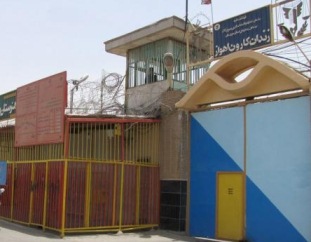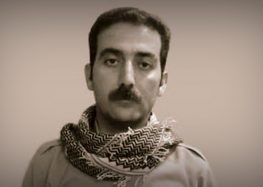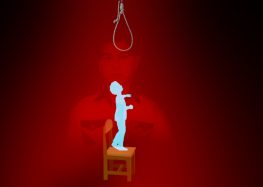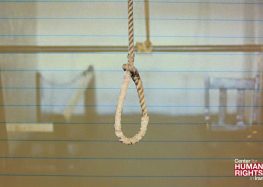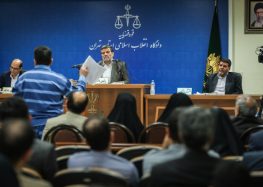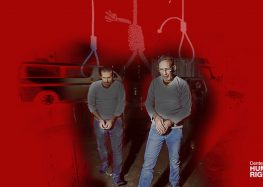Eleven Hanged in Five Days on Drug Related Charges
Nine prisoners found guilty of drug trafficking charges were hanged in the Karoun Prison courtyard in Ahvaz on May 12, 2014, after their sentences were confirmed by the Revolutionary Court, the Prosecutor General, and the Head of the Judiciary, the Khuzestan Province prosecutor’s office has announced.
The statement did not provide their full names, only their first and last initials and the amount of drugs they had allegedly stored, transported, and sold, which included opium, hashish, heroin, and crack.
Four days earlier, two prisoners were executed inside the Qom Central Prison. They had been arrested in 2011 on drug trafficking charges.
Meanwhile, 16 prisoners condemned to death on drug-related charges have received pardons in the past year after memorizing “half or all of the Quran in prison,” according to Hadi Sadeghi, the Judiciary’s Cultural Deputy.
In his latest report, Ahmad Shaheed, the UN Special Rapporteur on Human Rights in Iran, documented 1,529 executions in Iran since 2011, of which between 955 and 962 were drug related. Iran has the highest per capita execution rate in the world.
UN experts and government officials have repeatedly voiced concern over Iran’s use of the death penalty in drug-related convictions. Under international law, the use of the death penalty is restricted to only the “most serious” crimes, and the UN Special Rapporteur on extrajudicial, summary or arbitrary executions has explicitly held that drug-related crimes do not meet this criterion. Nevertheless, drug offenders are routinely sentenced to death and executed in Iran.
“Eighty percent of the executions [in Iran] have been in connection with drug trafficking and the United Nations should thank us for it,” said Javad Larijani, Head of the Iranian Judiciary’s Human Rights Council.
In October 2013, the International Campaign for Human Rights in Iran and the Iran Human Rights Documentation Center issued a statement to express concern not only with the increase in executions, but also with the severe flaws in the judicial process in these capital cases.
“Many defendants are denied due process and do not have adequate access to legal counsel. Additionally, evidentiary standards in these trials, especially in cases deemed ‘security crimes’ by the Iranian Judiciary, fall well below international norms,” the two groups said in their joint statement.
On February 22, the Office of the UN High Commissioner for Human Rights condemned the increase in capital punishment in Iran and named the country among the top three in the world with the highest number of executions.
“Although there have been positive signs in the improvement of human rights conditions in Iran after the election of President Hassan Rouhani, the installation of new government has not changed the number of executions,” said UN spokesperson Ravina Shamdasani.
In addition to drug trafficking and murder charges, the Islamic Republic has executed many for alleged political offenses, especially in the Khuzestan, Kurdistan, and Sistan-Baluchestan provinces.
The bodies of several ethnic Arabs executed in Khuzestan in the past year have not been delivered to their families and security officials have banned memorial ceremonies.
“We don’t know where our sons have been buried. We don’t know when they were executed. We don’t know where to sit and pray and light a candle for them. And no one cares,” Abdolrahman Heidari, the cousin of three Ahvazi Arabs who were executed, told the Campaign.

